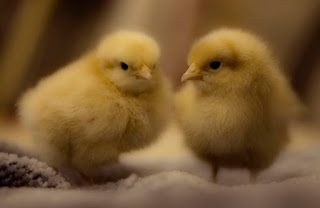
Starting an egg distribution business,could be a full time or part-time business. Starting an egg business is easy and profitable and you can start today. The first phase is to identify your customers,then find a reputable source,that will provide high quality eggs and at reasonable price.
Eggs are of various sizes and grades,and its better to have a mix of large,small and medium to cater for different clients. The ideal place will be to register with a farm, and sort out arrangements about frequency of collection and delivery. Eggs can also be collected at egg depots for further distribution to retailers and consumers. The targeted clients will determine your entry point to the business, you can be a big time player or small to medium player .
You don't need a lot of money to start the business, its a low capital startup that you can venture into with 30,000,and expand your capital base as you progress.The key to success is marketing,vecause if you cant network you cant sell. The challenge is not money or the products{eggs} your ability to do great networking. I was amazed to find out that the demand for egg is huge. H
Farm owners and bulk distributors, prefer having 30 customers who buys from them regularly than having 3 or 5 major buyers. The logic is with about 30 customers , at least 15 will be available on every sales day,thus creating a steady income.
Major egg suppliers comes from outside Lagos. The bulk of eggs consumed in Lagos comes from Ogun, Ondo and Oyo. The farms in Lagos are attached to notable merchants, but smart business people prefer to get their supply outside Lagos because its cheaper. When you factor in cost of fuel, stress and unnecessary roadblocks,sourcing in your locality makes better business sense.
Egg crates are important for the success of your business, plastic,paper or decorative seal- able crates are some of the options. The crates could be small or big depending on your egg sizes.While purchasing your egg crates, make arrangements for both the large size and small sizes. If you are transporting it over along distance, the use of big crates are advisable, because with big crates,the eggs will have space and you will experience lesser damages. When delivering eggs to retailers use the small ones,because when you use the big crates for delivery, the eggs look very small but with a small crate, small eggs look big.
Starting with egg distribution and supply depends on how big or small you want to start,as you are your own boss you set the pace. You can decide to be a retailer, a wholesaler and you can combine the two. The key to profit is to set a goal,determine how many crates you want to sell in a week and at what level,may be wholesale or retail.
100 crates @850 = 85,000. when sold per crate @900 =90,000 naira. A profit of 5,000 naira. The same 100 crates sold on retail basis yields 1,200 naira/crate which is a total profit of 120,000 naira only. The difference is enormous and potential huge as you get this amount of profit even with wholesales with the right niche.The margin could even be much higher depending on your source.
Superstores,shops, schools,eateries are a few of the places you can supply to and make money. Join our league of distributors and make money today.
See
















